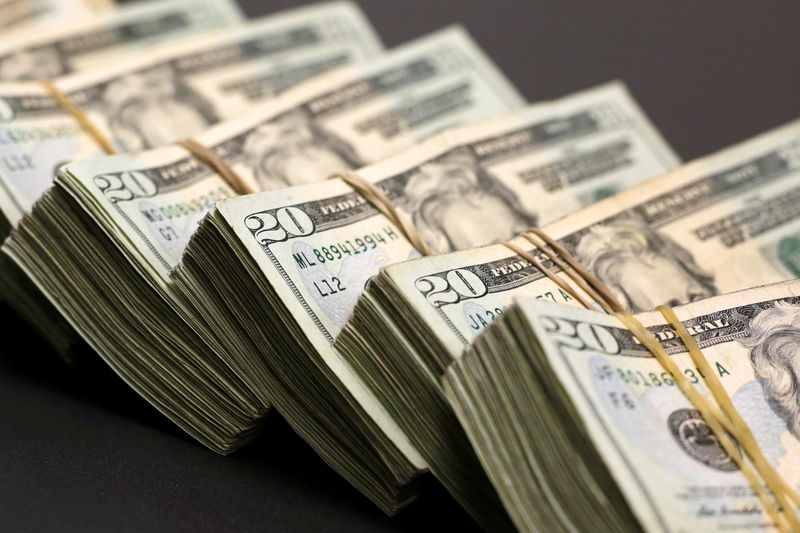By Gina Lee
Investing.com – The dollar was up on Thursday morning in Asia, rising to a nine-month high against both the euro and the riskier Antipodean currencies. The possibility that the U.S. Federal Reserve will begin asset tapering in 2021 also gave the U.S. currency a boost.
The U.S. Dollar Index that tracks the greenback against a basket of other currencies was up 0.32% to 93.445 by 11:02 PM ET (3:02 AM GMT), its highest level since Apr. 1.
The USD/JPY pair gained 0.40% to 110.08.
The AUD/USD pair was down 0.30% to 0.7209. Australian employment data released earlier in the day said that the employment change was 2,200 and the unemployment rate at 4.6% for July, both better than expected... however, the number of daily COVID-19 cases in the country has hit a fresh record.
The NZD/USD pair slipped 0.44% to 0.6858.
The USD/CNY pair edged up 0.14% to 6.4932 while the GBP/USD pair was down 0.25% to 1.3721.
The Fed released the minutes from its latest meeting on Wednesday, in which it said that asset tapering could begin later in the year. The condition for the commencement is that economic recovery continues to improve as expected, although "substantial further progress" toward maximum employment is yet to be met.
Investors now await the central bank’s Jackson Hole symposium, taking place from Aug. 26 to 28, for further clues on the asset tapering and interest rate hike timeline.
Some investors shared the Fed’s confidence.
"Our read is that Fed officials will continue to signal ongoing steps toward normalizing policy, providing the dollar with crucial ongoing underlying support," Westpac analysts said in a note.
"The Australian dollar remains in a powerful four-month downtrend," and looks set to drop below $0.72. The New Zealand dollar (NZD) is eyeing a drop to $0.68, although it should rise later in 2021, the note added.
The Reserve Bank of New Zealand (RBNZ) kept its interest rate unchanged as it handed down its policy decision on Wednesday, removing support for the NZD. However, RBNZ Governor Adrian Orr told parliament earlier in the day that he still expects the official cash rate to slowly increase towards a more neutral level over the next 18 months.
New Zealand is back under a lockdown to tackle a fresh COVID-19 outbreak that delayed RBNZ becoming the first G10 central bank to hike interest rates during COVID-19 times.
